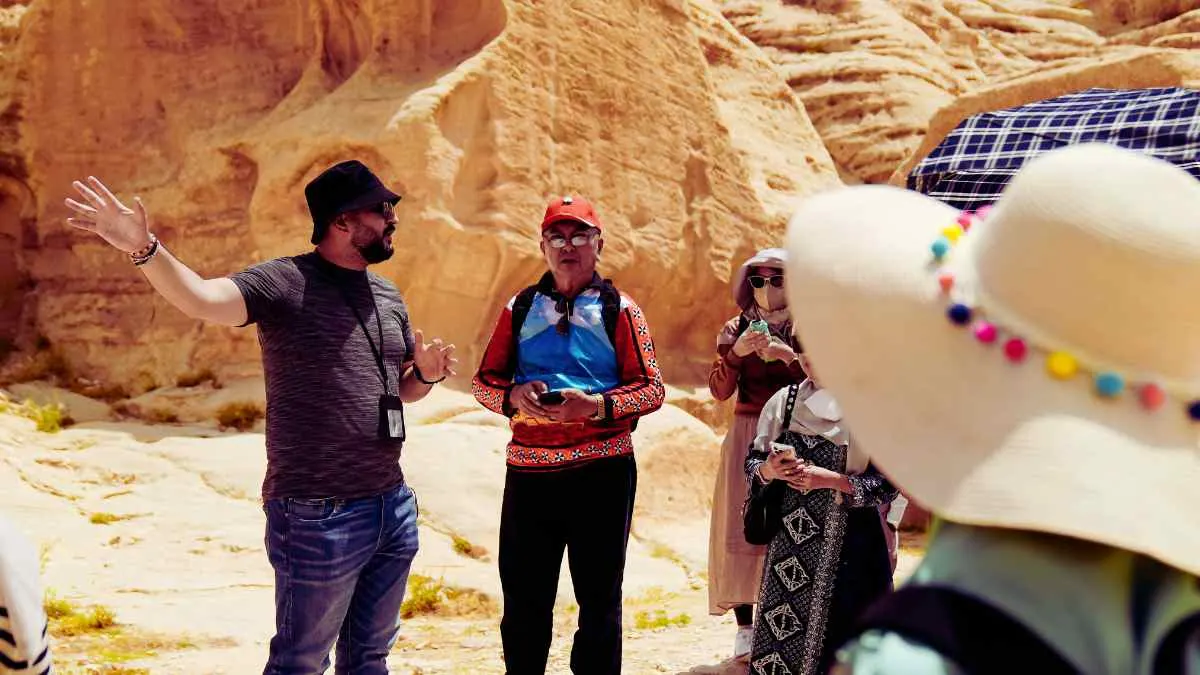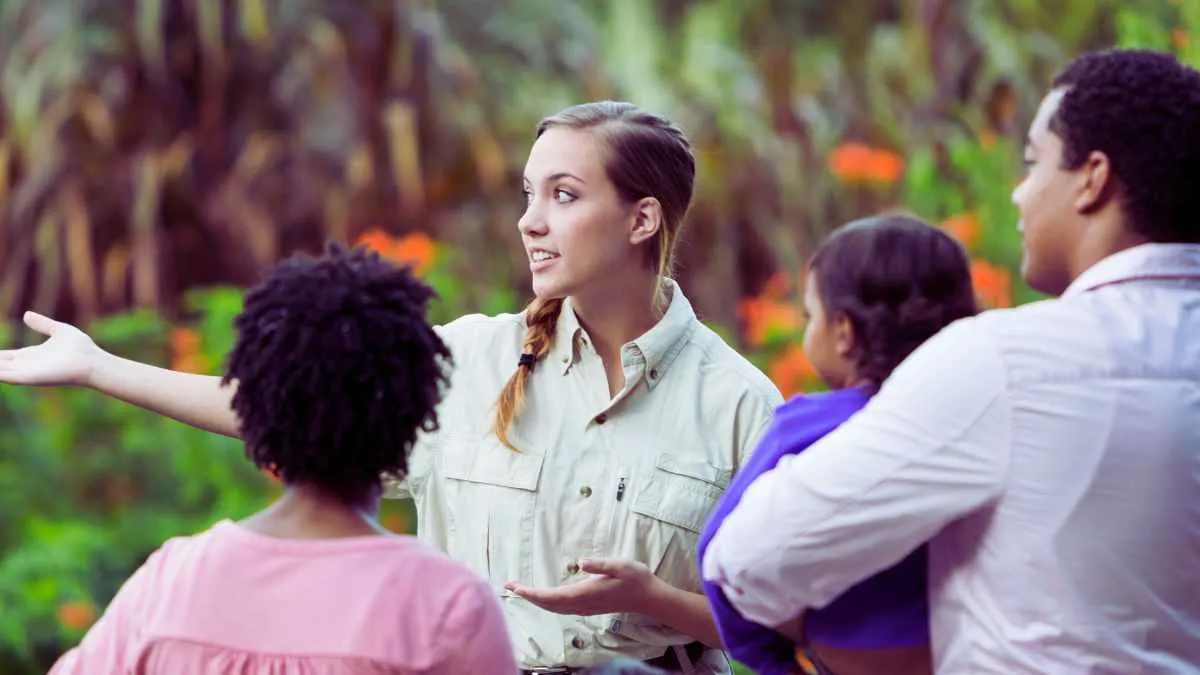Travel guides for beginners are resources designed to help first-time travelers navigate the complexities of planning and experiencing a trip.
They provide practical tips on choosing destinations, booking flights, packing essentials, and managing the travel experience with ease.
A beginner’s guide typically covers important aspects of travel, such as budgeting, staying safe, and making the most of your time while exploring new places.

Why Travel Guides for Beginners are Essential:
Traveling for the first time can be an exciting yet overwhelming experience.
If you’re planning a weekend getaway or a longer international journey, there’s a lot to consider. From choosing the right destination to booking flights, packing efficiently, and ensuring safety on the road, first-time travelers often feel like they’re navigating uncharted waters.
According to travel experts, many new travelers face the common challenge of not knowing where to begin. That’s where travel guides for beginners come into play. These guides are designed to make the travel process smoother, less stressful, and more enjoyable.
Find essential information, tips, and tricks, they empower novice travelers to make informed decisions, avoid common pitfalls, and ensure they get the most out of their travel experiences.
5 Best Travel Guides For Beginners :
When it comes to travel, one of the most exciting yet daunting tasks is choosing your destination. The options are endless, and for a first-time traveler, it can be hard to decide where to go. According to seasoned travelers, it’s important to start by considering a few key factors:
-
Budget: Determine how much you’re willing to spend. Some destinations are more budget-friendly than others, and knowing your budget will help narrow down your options.
-
Interests and Activities: Are you a history buff, a beach lover, or an adventure seeker? Knowing what activities you enjoy will help you choose the perfect destination.
-
Travel Restrictions and Safety: With ever-changing global travel restrictions, it’s important to research visa requirements, vaccinations, and any safety considerations for your destination.
-
Duration: Consider how much time you have available. If you only have a long weekend, a closer destination may be more practical. For longer trips, you may want to explore farther or visit multiple places.
According to travel experts, a good strategy is to start by choosing a destination that is known to be tourist-friendly, with plenty of things to see and do that suit your interests.
Booking Your Flights and Accommodation:
Once you’ve chosen your destination, it’s time to book your flights and accommodation. This can be a tricky process for beginners, but there are plenty of resources to make it easier.
-
Booking Flights: Use comparison websites like Google Flights, Skyscanner, or Kayak to compare flight prices and find the best deals. Be sure to book early, as this can save you money. Look for flexible cancellation policies in case your plans change.
-
Accommodation: Depending on your budget and preferences, you can choose from hotels, hostels, vacation rentals (like Airbnb), or even homestays. According to accommodation experts, budget travelers might prefer hostels or Airbnb, while those seeking luxury may opt for 4- or 5-star hotels. For first-time travelers, staying in a well-located area near popular attractions can save you time and money on transportation.
-
Booking Tips: Consider signing up for travel alerts on flight and hotel deals. According to travel bloggers, subscribing to newsletters or following deals on social media can help you snag discounted prices.
Read Next: 5 Wellness Retreat Travel
Packing Essentials: What to Bring on Your First Trip:
Packing can be one of the most overwhelming tasks for first-time travelers. According to travel guides for beginners, packing light is key. Here’s a basic list of essentials you shouldn’t forget:
-
Passport and Identification: Make sure your passport is up-to-date, and have any necessary visas for your destination. It’s also a good idea to carry an ID (like a driver’s license) for identification purposes.
-
Clothing: Pack according to the climate of your destination. Stick to versatile pieces that can be mixed and matched. Don’t forget comfortable shoes for walking and, if applicable, a swimsuit.
-
Toiletries: Pack travel-sized toiletries (toothpaste, shampoo, etc.) to comply with airport security regulations. A toiletry bag will keep your items organized.
-
Health Essentials: Bring any prescribed medications, along with a small first-aid kit, sunscreen, and hand sanitizer. If traveling internationally, check if you need any vaccinations.
-
Technology and Accessories: Bring a power bank for your devices, an adapter for electrical outlets, and a camera or smartphone to capture memories. According to tech travel bloggers, portable chargers are especially important for international travel where finding power outlets can be challenging.
-
Travel Insurance: It’s always a good idea to have travel insurance, especially if you’re traveling abroad. This can cover unexpected expenses such as medical emergencies, lost luggage, or trip cancellations.
Staying Safe and Navigating New Destinations:
Safety is always a priority when traveling, and first-time travelers should take extra precautions. According to safety experts, here are a few tips to stay safe on your journey:
-
Research Your Destination: Learn about the local customs, laws, and culture. Understanding cultural norms will help you avoid misunderstandings and respect local traditions. According to cultural travel guides, being aware of the local language, etiquette, and dress codes is essential for making a good impression.
-
Avoid Risky Areas: While most places are safe for tourists, it’s wise to research areas to avoid, especially if you’re traveling to a big city. Use local maps and ask your hotel concierge for safety tips.
-
Keep Copies of Important Documents: Always keep photocopies or digital copies of your passport, ID, and travel insurance policy in case you lose your originals. According to travel professionals, storing documents in a secure location, like a hotel safe or encrypted digital folder, is important.
-
Use Trusted Transportation: For getting around, use reputable transportation methods like official taxis, ride-sharing apps (like Uber), or public transport. Avoid getting into unmarked vehicles.
Making the Most of Your Travel Experience:
Now that you’re ready for your first trip, it’s time to think about how to fully enjoy your experience. According to seasoned travelers, here are a few tips for making the most of your trip:
-
Be Flexible: While having a plan is important, allow for flexibility. You may discover hidden gems or unexpected experiences along the way, so keep an open mind.
-
Engage with Locals: Don’t hesitate to interact with locals. They can offer tips on places to visit, restaurants to try, and experiences you might not find in guidebooks. Local travel guides often recommend this as the best way to truly experience a city.
-
Take Lots of Photos: Capture the moments, but also take time to be present. Don’t get so caught up in photos that you miss the experience itself.
FAQs:
Q. How do I choose the best travel destination?
Choose a destination that fits your budget, interests, and the kind of experience you want (e.g., adventure, relaxation, culture). Research destinations online and consider factors like visa requirements and weather conditions.
Q. How can I save money on travel as a beginner?
Look for deals and discounts on flights and accommodations, travel during the off-season, and use apps for transportation (like public transit or ride-sharing) to keep costs down.
Q. Do I need travel insurance for my first trip?
While not mandatory, travel insurance is highly recommended for peace of mind, especially for international travel. It can cover medical expenses, trip interruptions, and lost baggage.
Q. What should I do if I get lost in a new city?
Stay calm, use your phone for directions, or ask a local for help. Travel experts suggest downloading offline maps or using a translation app to make navigation easier.

